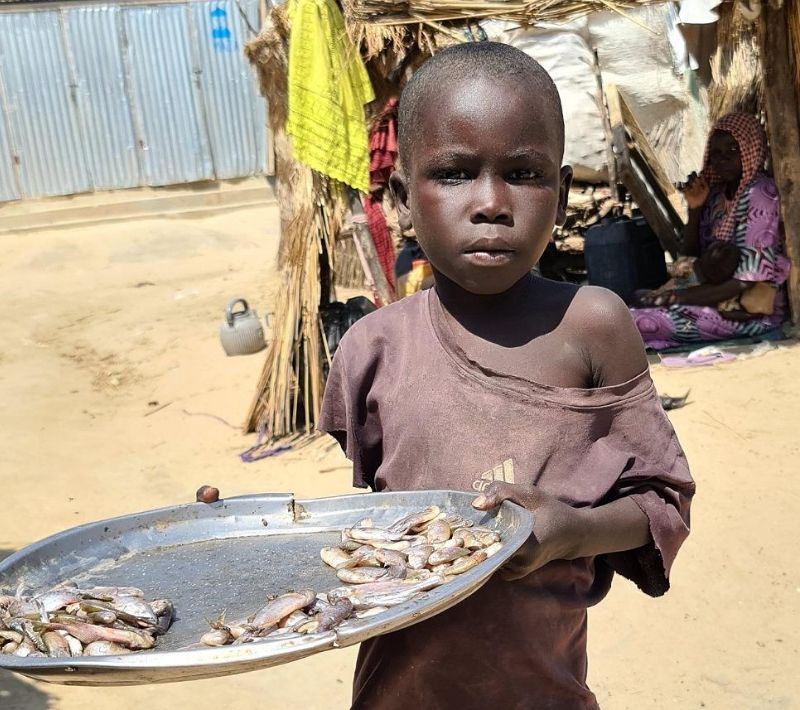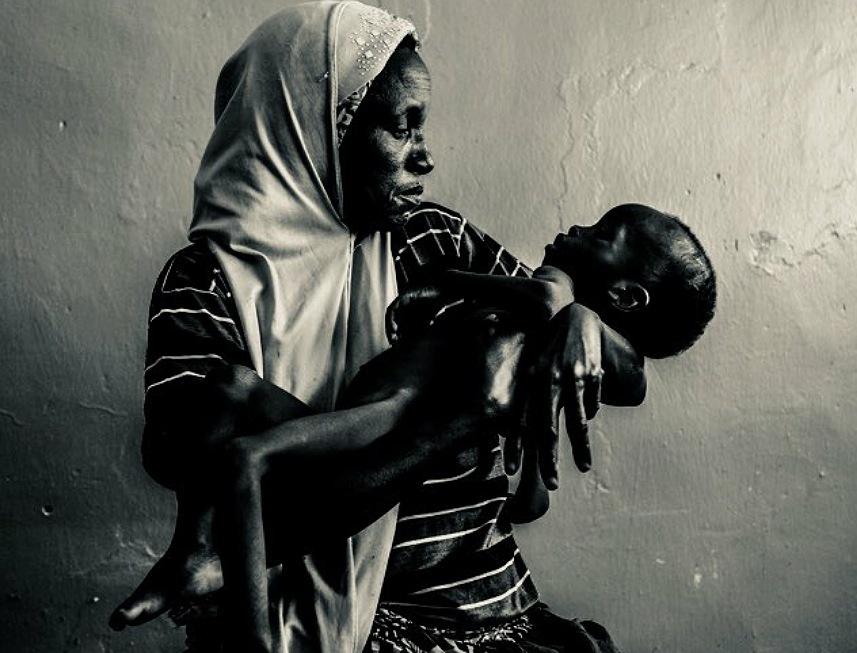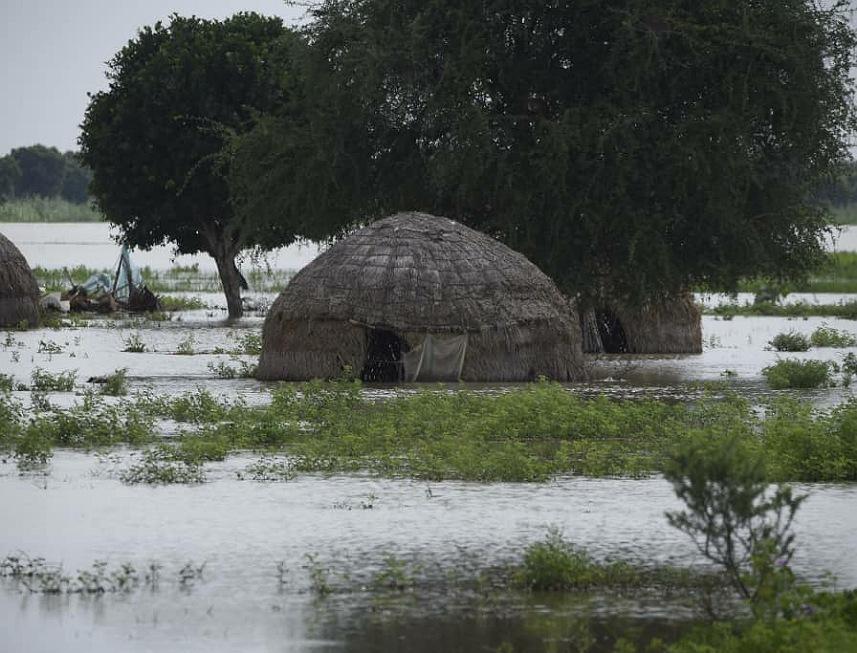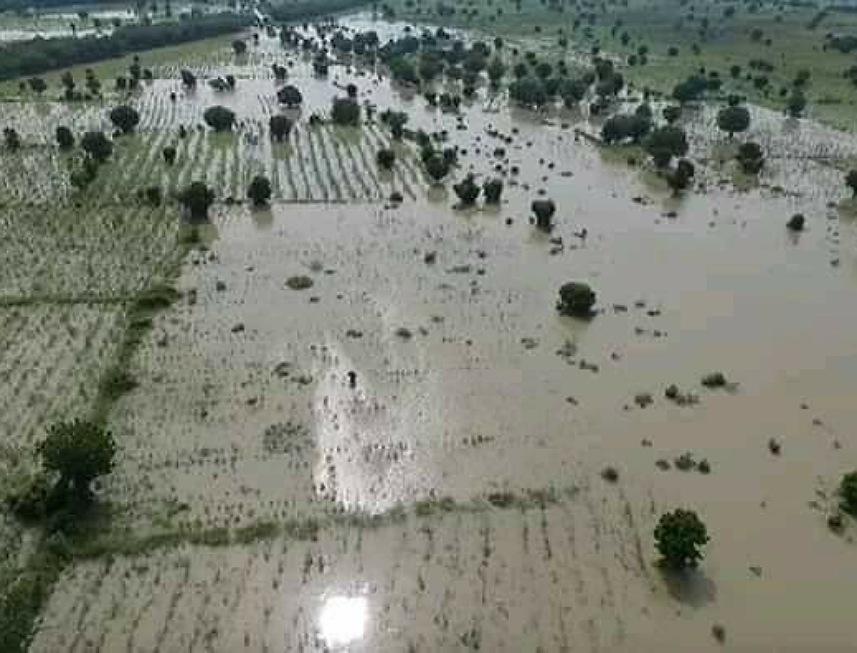Thousands of Lives At Risk As Famine Looms In Nigeria

There is a growing risk of famine in Nigeria as insecurity in Northern states increases. In states like Zamfara and Katsina, farmers have abandoned their farmlands for fear of being killed. Most of these farmlands are located in bushy areas which coincidentally, is the hiding place for these criminals. The risk of death that has stopped many farmers from planting crops has also stopped others from harvesting mature crops.
In some parts of Zamfara, Kaduna, and Katsina, peasant farmers pay N300k-N900k to armed Bandits to harvest their farm produce. These armed bandits threaten farmers with death or abduction, often setting fire to crops if their demands are not met. Other times, they attack these farmers even though they have received payment. Leading to the destruction of harvestable farm produce sitting in these farmlands.
 Image Source: Twitter.com
Image Source: Twitter.com
One of the problems of food insecurity is that it affects the less privileged among the population. In a country like Nigeria with almost ninety million people living below the poverty line, famine means death for most.
The last time famine loomed in Nigeria was in 2017. In February 2017, Unicef had something to say about the situation. “Time is running out for more than a million children,” said UNICEF Executive Director Anthony Lake. “We can still save many lives. The severe malnutrition and looming famine are largely man-made. Our common humanity demands faster action. We must not repeat the tragedy of the 2011 famine in the Horn of Africa.”
In northeast Nigeria, the number of children with severe acute malnutrition is expected to reach 450,000 this year in the conflict-affected states of Adamawa, Borno and Yobe. Fews Net, the famine early warning system that monitors food insecurity, said late last year that famine likely occurred in some previously inaccessible areas of Borno State and that it is likely ongoing, and will continue, in other areas which remain beyond humanitarian reach.”
Now three years later, the World Food Programme, The WPF reports “This report is a clear call to urgent action,” said Dominique Burgeon, FAO’s Director of Emergencies and Resilience. “We are deeply concerned about the combined impact of several crises which are eroding people’s ability to produce and access food, leaving them more and more at risk of the most extreme hunger. We need access to these populations to ensure they have food and the means to produce food and improve their livelihoods to prevent a worst-case scenario.”
 Image Source: Twitter.com
Image Source: Twitter.com
Flooding In Jigawa, Nigeria
Since August, the people of Jigawa, a state in Northern Nigeria have been hit with terrible floods, destroying acres of farmland, loss of lives, and displacement of hundreds of people. These floods have deprived the country of 25% of its annual rice production and other foodstuffs.
According to Punch, “Jigawa is one of the states that has benefited most from the federal government’s Anchors Borrowers Programme to assist farmers to boost rice production in the country.
Mr. Muhammad, the governor’s aide, expressed the fear that the state may experience food shortage, saying that “Sixty-five percent of Fadama farmland were washed away by the flood especially in Hadejia where much-anticipated rice is expected.”
He added that grains like millet, maize, and sorghum were also lost to the flood.”
 Image Source: Twitter.com
Image Source: Twitter.com
Why Famine In Northern Nigeria Is Famine For All Nigerians
Lots of food crops in the country come from the Northern states. Food crops like cowpea, rice, sugar cane, yam, tomatoes, pepper, wheat, soybean, maize, and groundnut are farmed in bulk in states like Jigawa, Benue, Kano, Katsina, and Plateau state.
Food shortage in these parts of the country would mean food scarcity in other parts. In nine months, one hundred and twenty-four children have died of malnutrition in Kaduna. Already, Nigerians in other parts of the country are feeling the heat of this food scarcity as prices of foodstuff rise to astronomical heights.
She's a beauty and an exquisite lady who enjoys the high life in writing and poetry. Her writing style and prowess is innovative and focuses on the feminine perspective, bringing nothing but wholesome gratification to the African, Afrocentric and Afro-American women at large

